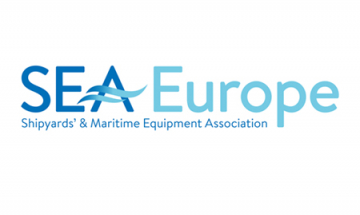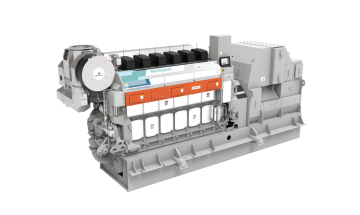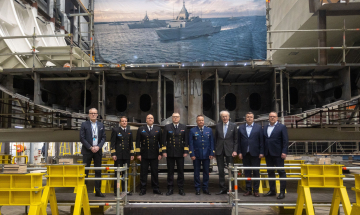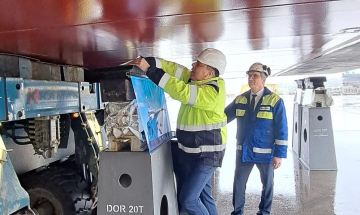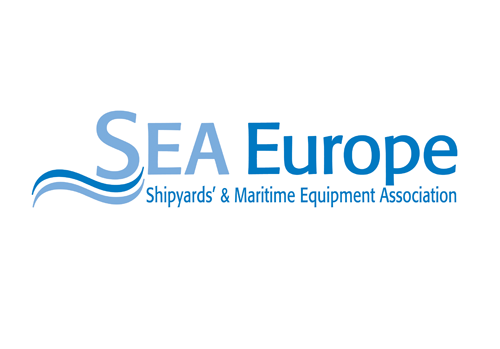
An historical opportunity to level the playing field against foreign distortions in shipbuilding and maritime equipment manufacturing
Brussels, 19 June 2020
Over the past years, SEA Europe has raised increasingly concerns about the negative impact from foreign (mainly Asian) subsidies distorting competition to the detriment of Europe’s shipbuilding and maritime equipment industry (known as the “European maritime technology sector”).
“The White Paper on Foreign Subsidies, published on 17 June, offers a very interesting and comprehensive analysis of existing EU rules on competition, trade, public procurement and EU funding, on which we can certainly build upon”, said Christophe Tytgat, SEA Europe’s Secretary General. “In addition, the White Paper offers a number of promising proposals for actions, which can help both shipyards and maritime equipment industry in Europe to tackle eventually the long-standing distortive practices arising from massive Asian subsidies in the maritime technology sector”, he added.
In general, the White Paper recognises a fundamental regulatory gap in existing EU legislation on competition, trade, public procurement and in EU funding as regards distortions arising from foreign subsidies in the Internal Market. The White Paper also acknowledges that foreign subsidies can be driven by strategic objectives, such as establishing a strong presence in the EU, promotion of acquisitions and transferring technologies to production sites outside of the EU. Finally, the White Paper recognizes that EU companies do not always compete on an equal footing with companies benefiting from foreign subsidies, with the latter being able to make more advantageous offers.
The White Paper also recognises important problems relevant for the maritime technology sector, such as distortions arising from export credits that are not in line with the OECD discipline or the fact that foreign subsidies occurring in markets “with structural excess capacity” or in “fast growing high-tech markets” are or may be, respectively, “more likely to cause distortions than others”.
For far too long, Europe’s shipyards have suffered – and continue to suffer – from severe and unfair foreign distortions resulting from aggressive (mainly Asian) State-led policies. These policies contain a toolbox of massive state aid and other huge financial incentives, but also prices below-production costs. These foreign distortions and subsidies have already resulted in a nearly complete disappearance of merchant shipbuilding (i.e. the building of tankers, bulkers and containerships) and partly of offshore building in Europe. More recently, these policies have started to impact adversely the building of complex ship types in Europe too. Europe’s maritime equipment manufacturing has been equally suffering from distortions arising from foreign subsidies and trade distortions.
For Europe’s maritime technology sector, the White Paper clearly offers interesting avenues to build concrete and effectively applicable measures to achieve a level playing field for both shipyards and maritime equipment manufacturers.
“I am pleased to read an explicit reference to our sector, in particular to Regulation 2016/1035 on protection against injurious pricing of vessels and the Commission’s acknowledgement that this Regulation has never been applied because its application has been made conditional upon the ratification of an OECD Shipbuilding Agreement. This Agreement was signed in 1994 and scheduled to enter into force in 1996 after all Parties to it had concluded their national ratification procedures. However, since the Agreement was not ratified by one Party it has never entered into force”, Mr. Tytgat continued. “Equally, I am pleased to read that the White Paper does not exclude shipbuilding or maritime equipment from the scope of application of the new legal instrument tackling distortions from foreign subsidies. Therefore, the shipbuilding and maritime equipment industry could potentially benefit from rules aiming at protecting the sector from long-standing distortive foreign subsidies. It is of the utmost importance that the maritime technology sector can make use of this instrument, because the sector faces a huge legal gap, which – if not resolved quickly – can result in losing the entire industry to Asia within a few years. I therefore call upon the European Commission to fully address the shipbuilding’s specific legal gap in trade defence instruments and to tackle also all other distortions arising from foreign subsidies in our sector”, Mr. Tytgat concluded.
Background Note: SEA Europe represents close to 100% of the European shipbuilding industry in 16 nations, encompassing the production, maintenance, repair and conversion of all types of ships and floating structures, commercial as well as naval, including the full supply chain with the various producers of maritime systems, equipment material, and services.
For further information please visit www.seaeurope.eu or contact:
Christophe Tytgat, Secretary General, ct@seaeurope.eu
Tel: +32 (0)2.230.32.87

